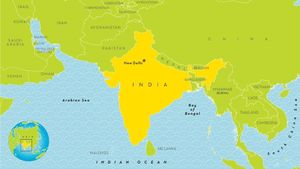The Bolsa Família program, one of Brazil's primary social assistance initiatives, will initiate its February 2025 payment schedule starting next week. The Ministry of Development and Social Assistance has confirmed the payments will begin on February 17, providing much-needed support to eligible families across the nation.
According to the ministry, every registered household under the Bolsa Família program is entitled to receive at least R$ 600 per month. This amount can be complemented with additional benefits depending on family composition; for example, each child aged between zero and six years qualifies for R$ 150. There is also specified assistance of R$ 50 available for other special cases, including pregnant women and infants up to six months old, as well as youths aged from seven to 18 years.
This structured payment system follows the last digit of each beneficiary's Número de Identificação Social (NIS), which dictates when funds will be distributed. Payments will commence as follows: those with NIS ending in 1 will receive their benefits on February 17, followed by subsequent recipients based on their NIS digits through February 28.
The complete February schedule is as follows: NIS ending with 1 on February 17, 2 on February 18, 3 on February 19, 4 on February 20, 5 on February 21, 6 on February 24, 7 on February 25, 8 on February 26, 9 on February 27, and finally, those with NIS ending with 0 on February 28.
It's significant to note the adjustments due to emergency conditions. Beneficiaries residing in areas with active public emergency declarations may access their benefits earlier, receiving their payments concurrently with those who have NIS ending with 1 on February 17. This strategy aims to alleviate the financial pressure on families facing extraordinary circumstances.
To receive the benefits, families must meet eligibility criteria. These include maintaining per capita income below R$ 218 and ensuring their profiles are current within the Cadastro Único for Social Programs, the government’s official register. Monthly updates include lists of new beneficiaries approved by the Ministry of Development.
Families can verify their benefit status and receive announcements via the Bolsa Família app, available for both Android and iOS devices, or through the Caixa Tem platform. The app provides options for checking payment statuses, accessing virtual debit cards, conducting bank transfers like Pix, and ensuring ease of use for those needing immediate assistance.
The program's design aims not just at providing financial assistance, but also at encouraging compliance with health and education requirements. Beneficiaries will need to prove school attendance for children aged between 4 and 17, maintain prenatal care, and adhere to nutritional evaluations for their younger children, thereby supporting overall community health.
Historically, the Bolsa Família program, inaugurated in 2003, has been instrumental in reducing poverty and social inequality across Brazil. Current involvement from approximately 21 million families highlights its continued necessity and influence on local economies.
There's also the matter of the program's special provisions; the Bolsa Família offers several distinct benefits targeted at various family needs, such as the Renda de Cidadania and additional components for younger family members and pregnant women. The latter ensures not only financial support but also contributes to the broader public health narrative through required prenatal and subsequent healthcare access.
Beneficiaries should remain vigilant about upcoming payment cycles and requirements, ensuring they comply with the guidelines to maintain their eligibility for continued support. The socio-economic impact of these payments culminates not only in bolstered household income but also stimulates local markets by enhancing purchasing power.
By setting up manageable modalities for payment distribution, the Bolsa Família program exemplifies focused governmental efforts to ease the financial burdens faced by low-income families, particularly at times when expenses, such as those encountered during carnival season, can escalate.
To summarize, the February 2025 payment schedule for the Bolsa Família is structured operationally to provide timely support to families, where maintaining updated information and eligibility will continue to be pivotal. The program remains foundational to Brazil's approach to social assistance, demonstrating the government's commitment to combating poverty and supporting the most vulnerable populations across the nation.



